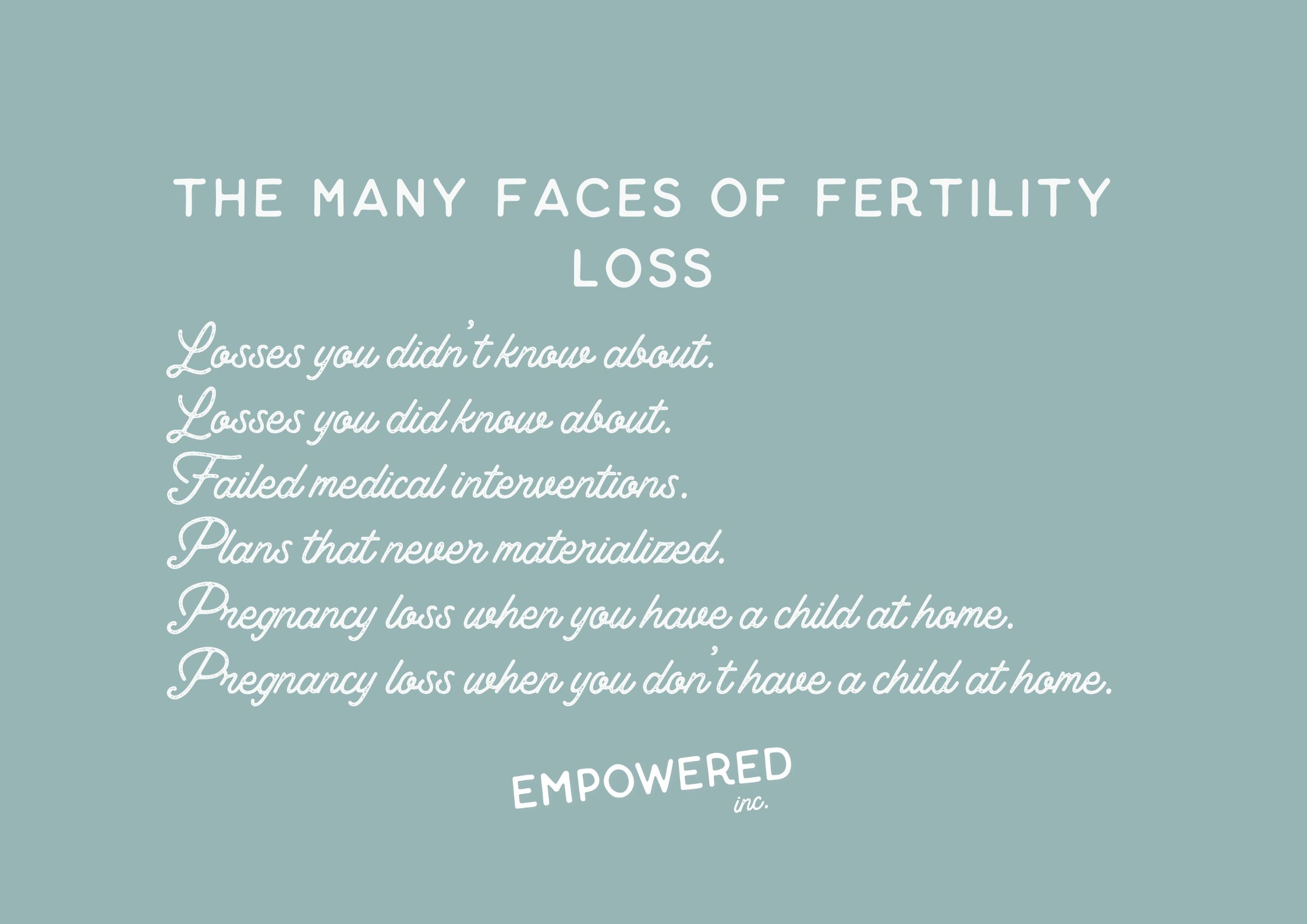Fertility Loss and Grief: What No One Tells You About Pregnancy Loss and Healing
Jun 23, 2025
What grief looks like when you lose a pregnancy — and how to heal.
When you're planning for a family, nobody hands you a manual for loss. No one warns you that the same body you pin your hopes to can feel like a traitor. And no one tells you how isolating it is to lose a future no one else ever got to meet.
Fertility can be a raw, unpredictable, and hard journey.
It invites both hope and heartbreak. And when heartbreak happens, it leaves people confused, lost, and left with a grief the world barely recognizes.
Why Is Family Planning So Hard?
Because it isn’t just about getting pregnant and having a baby.
It’s about dreams you imagined. It’s about timing and control and what it means to be a parent—or not. And it rarely, rarely follows the neat little timeline we imagined.
The path to a family is often paved with invisible heartbreaks: months of negative tests, pregnancies lost before anyone even knew, and choices no one should have to make. It’s hard because it’s tender, personal, and totally out of your hands.
When we try to plan for a family, there is no right or wrong. We must turn inward and listen to our intuition in order to know the “right” and “wrong” decisions —and aligning with our intuition is incredibly difficult when we are simultaneously asking ourselves a hundred questions including “why is this happening to me?”
The Many Faces of Fertility Loss

Grief shows up in ways people don’t expect—that’s because fertility loss is different for every single person.
Here’s what often gets missed:
- Losses you didn’t know about. Early miscarriages you didn’t realize were happening. That time your period was late, and you just felt it.
- Losses you did know about. Miscarriages at any stage, ectopic pregnancies, stillbirths.
- Failed medical interventions. IVF cycles that never took. IUI attempts that didn’t work. The constant rollercoaster of hope and heartbreak.
- Plans that never materialized. The adoption that fell through. The foster placement you said yes to in your heart, but that child never came.
- Pregnancy loss when you have a child at home. The world expects you to be grateful, and you are—but it doesn’t cancel out the grief.
- Pregnancy loss when you don’t have a child. The crushing loneliness of empty arms and unanswered prayers.
Each loss is a loss. There’s no hierarchy of grief. No one gets to decide whose pain counts more. It all matters and it all deserves care.
Why People Struggle to Understand Fertility Loss
Fertility loss is a grief that isn’t widely acknowledged, validated, or publicly mourned. Society struggles with what it can’t see. And when it comes to fertility loss, much of it is invisible.
People fumble for the right words, often landing on what feels like dismissive clichés like: “at least you have one child,” “it wasn’t meant to be,” or “you can always try again.”
Just stop.
Good intentions don’t soften the hurt. Comments like these often isolate the person grieving even more. What people need in these moments isn’t logic or silver linings—it’s presence. It’s someone willing to sit in the ache without trying to fix it.
How to Heal
Hint: There’s No Right Way
Fertility loss is a grief that doesn’t go away, it becomes part of you that you carry in your bones. And while you don’t have to heal perfectly, you do deserve spaces where your grief is safe and seen.
There are many ways to help carry the grief that comes with fertility loss. Not every “way” will be helpful, it depends on the individual.
Some ways to carry this kind of grief are:
- On your own:
Write. Scream. Burn the calendar full of cycle dates and doctor’s appointments. Create a ritual to mark what was lost—light a candle, plant a tree, name them. The main point is to release the energy that feels heavy in whatever way creates ”space.” - With mentorship:
Find someone who’s walked this road before you. Not to tell you it gets better, but to remind you you’re not alone. - With community:
Seek out group therapy, online forums, grief circles. Surround yourself with people who get it, no explanations necessary. - Through therapy:
A good therapist can help you unravel the complicated, messy tangle of emotions fertility loss leaves behind.
Resources
Fertility Matters (Canadian)
Pregnancy & Infant Loss Support Centre (Canadian)
RESOLVE. The National Infertility Association (American)
Return to Zero. H.O.P.E. (American)
Grief like this doesn’t disappear—you learn to live with it. Some days it’s a dull ache; other days it’ll drop you to your knees. Both are human and hard.
Final Thoughts
Fertility loss is a commonly overlooked grief. Fertility loss often feels intangible. It is a loss that often isn’t visible, and is difficult to comprehend because there are so many complex factors that come with it.
The grief that comes with ferility loss is valid.
And when we recognize this, it is about finding ways to live with your loss. And about discovering, slowly and on your own terms, what healing might look like.
Looking for support?
Empowered Inc. offers resources, trainings, and community for those navigating grief in all its forms. Subscribe to our newsletter to join others navigating loss no one wants to talk about. We’re building a different kind of grief education here. One that is healing and lasting.
Empowering Updates
Subscribe to get the BEST Empowered updates delivered to your inbox:
We don't like spam either. You can unsubscribe at any time.



